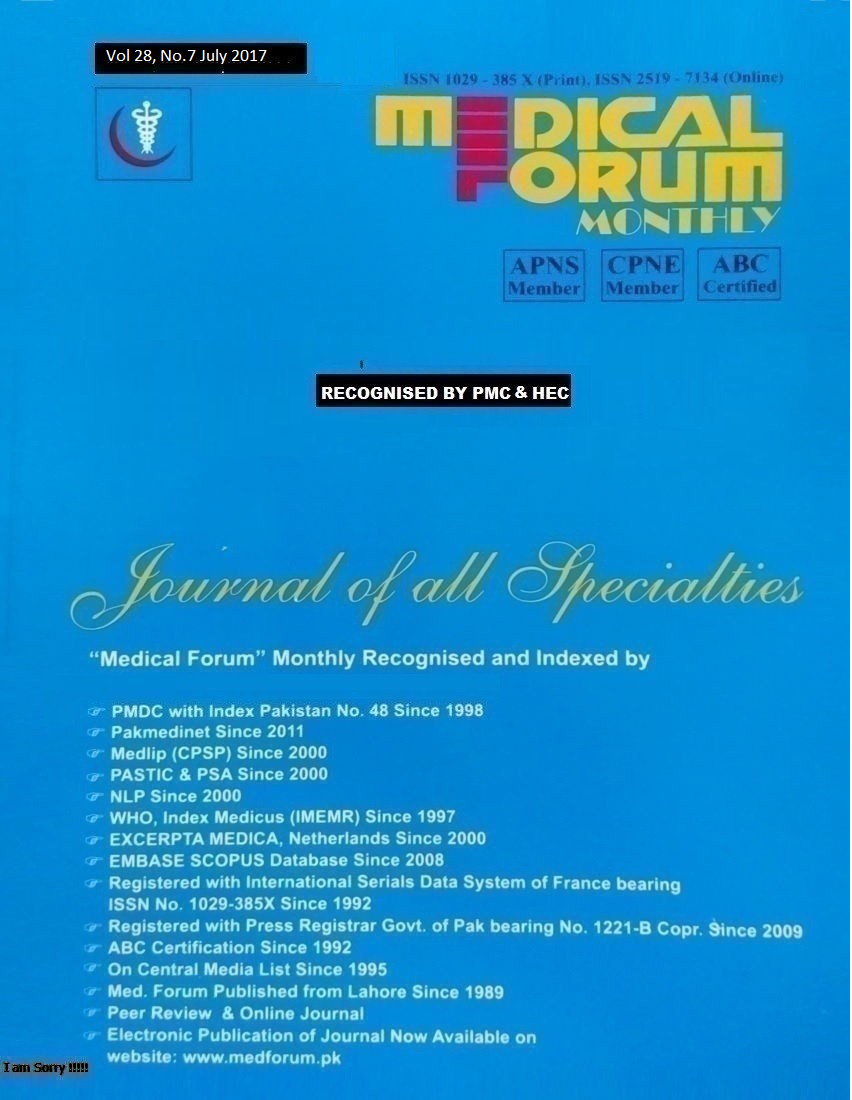
22. Parental Consanguinity and Increased Risk of Idiopathic Congenital Talipes Equinovarus (CTEV)
Sajid Akhtar1, Anwar Imran2, Faiz Ali Shah2 and Shahab ud Din2
ABSTRACT
Objective: The objective of this study was to establish relationship of parental consanguinity as a risk factor for
congenital Talipes Equinovarus.
Study Design: Prospective study
Place and Duration of Study: This study was conducted at the Department of Orthopedics Surgery, Lady Reading Hospital Peshawar from 1st July 2014 to 30th June 2015.
Materials and Methods: This study comprised 140 patients. Patients with CTEV presenting to the outdoor department were included and data was taken through a simple questionnaire including consanguinity and nonconsanguinity.
Results: There were 86 (61.42%) males and 54 (38.57%) females. Eighty eight (62.85%) patients have bilateral deformities while the rest 52 (38.57%) patients have unilateral deformities. out of the 52 patients with unilateral deformity. The right side was involved in 37 (71.15%) patient and the left side in 15 (28.84%) patients. Out of these 140 patients with CTEV, 71 (50.71%) patients were born to parents having cousin marriage while the rest of 69 (49.28%) had marriages outside their family.
Conclusion: Consanguineous marriage was significantly associated with an increased risk of idiopathic CTEV.
Even after adjusting for potential confounding variables the associati n remained significant.
Key Words: CTEV; Consanguinity; Idiopathic
Citation of articles: Akhtar S, Imran A,, Shah FA, S Din. Parental onsanguinity and Increased Risk of Idiopathic Congenital Talipes Equinovarus (CTEV). Med Forum 2017;28(7):89-91.
